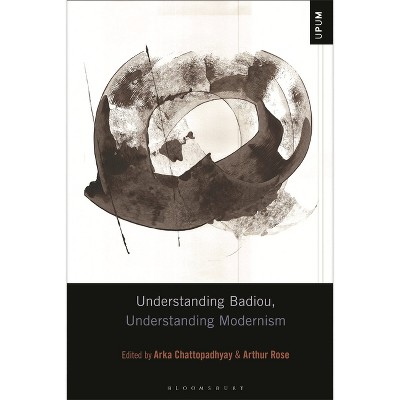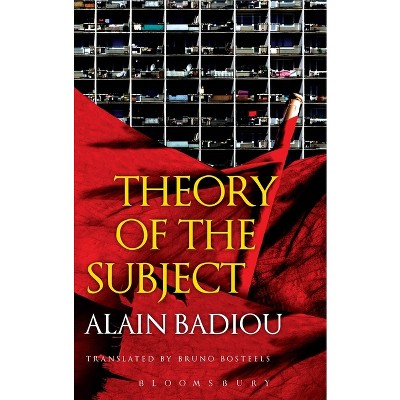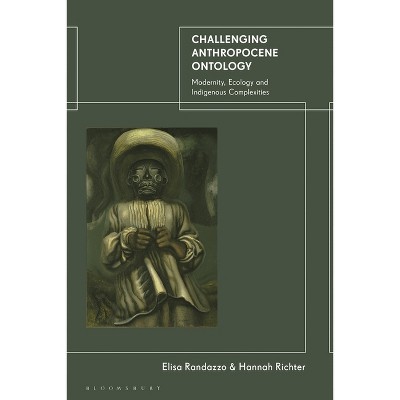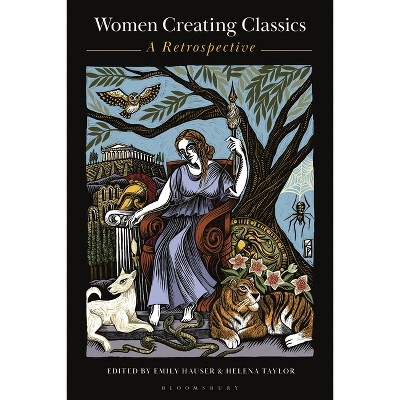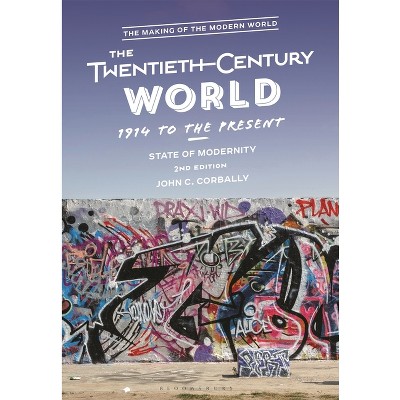Sponsored

Badiou's Ontology of the Present - by Michael Hauser (Hardcover)
Pre-order
Sponsored
About this item
Highlights
- Emerging from the twin shadows of neoliberalism and postmodernism, Michael Hauser paints our current historical moment as an interregnum, born of but departing from those two towering modes of late 20th-century culture.
- About the Author: Michael Hauser is a Senior Researcher at the Institute of Philosophy of the Czech Academy of Science, and an Associate Professor in Philosophy at the Faculty of Education of Charles University in Prague, Czech Republic.
- 328 Pages
- Philosophy, Political
Description
About the Book
"Emerging from the twin shadows of neoliberalism and postmodernism, Michael Hauser paints our current historical moment as an interregnum, born of but departing from those two towering modes of late 20th century culture. Drawing together a vast range of thinkers and theoretical models, from Gramsci to Jameson, and answering some of the contradictions at the heart of Alain Badiou's most influential works, Hauser traces the reasons for the decline and demise of the grand narratives of the 20th century and the ideologies that replaced them"-- Provided by publisher.Book Synopsis
Emerging from the twin shadows of neoliberalism and postmodernism, Michael Hauser paints our current historical moment as an interregnum, born of but departing from those two towering modes of late 20th-century culture. Seen in this light, the preoccupation of populism, identity politics, hybrid wars and other contemporary phenomena can be seen as the result of the disintegration of neoliberal agendas and postmodernist sensibilities.
Drawing together a vast range of thinkers and theoretical models, from Gramsci to Jameson, Hauser traces the reasons for the decline and demise of the grand narratives of the twentieth century and the ideologies that replaced them. His explanation of the foundational 'epicycloid' and disintegrative 'elliptical' stages of political movements then lays the ground for a deep engagement with Alain Badiou, understanding his 'transitory ontology' as a philosophical response to our interregnum. By expanding and unpicking Badiou's thoughts on mathematics, politics, art, love, and the conditions of doing philosophy, we can imagine a point beyond the present moment in history.Review Quotes
"Michael Hauser constructs a compelling theory of the present as the repetition of interregnum in an atonal world without Events. Hauser articulates an original interpretation of Badiou's thought, in which the concept of interregnum serves to interrogate both the Stalinist past and the contemporary neoliberal and postmodern order. Hauser argues that the post-1989 neoliberal order was fundamentally parasitic and prosthetic, grafting the egalitarian promises of socialism to better infiltrate decomposed, post-socialist societies. In the present, in contrast, this clarity has dissolved into a cacophonous conflation of social models, the forms of which circulate in a culture of immediate consumption without Idea. In this context, Hauser deploys the thought of Alain Badiou in a highly original configuration, to discern the limits of the present interregnum, as well as the emergent promise of an egalitarian, communist order to come." --Professor Nick Nesbitt, Department of French & Italian, Princeton University
"Hauser's wager: not only is a philosophy of history still possible, but it can cast such a light on the ideological impasses of the current era that we begin to see our way around them. Hauser develops an original reading of Alain Badiou's philosophy in which he focuses on the ambiguities and the adequacy of the latter's diagnosis of Stalinism, and more broadly on the question of the periodization of the idea of communism, and its exhaustion, in the twentieth century. He creatively employs Badiou's conception of subject-positions as being derived from particular relationships to political events in order to diagnose a hidden but exploited element of emancipatory energy in even the most reactionary ideologies." --Professor Oliver Feltham, American University of ParisAbout the Author
Michael Hauser is a Senior Researcher at the Institute of Philosophy of the Czech Academy of Science, and an Associate Professor in Philosophy at the Faculty of Education of Charles University in Prague, Czech Republic.Shipping details
Return details
Trending Book Pre-Orders






